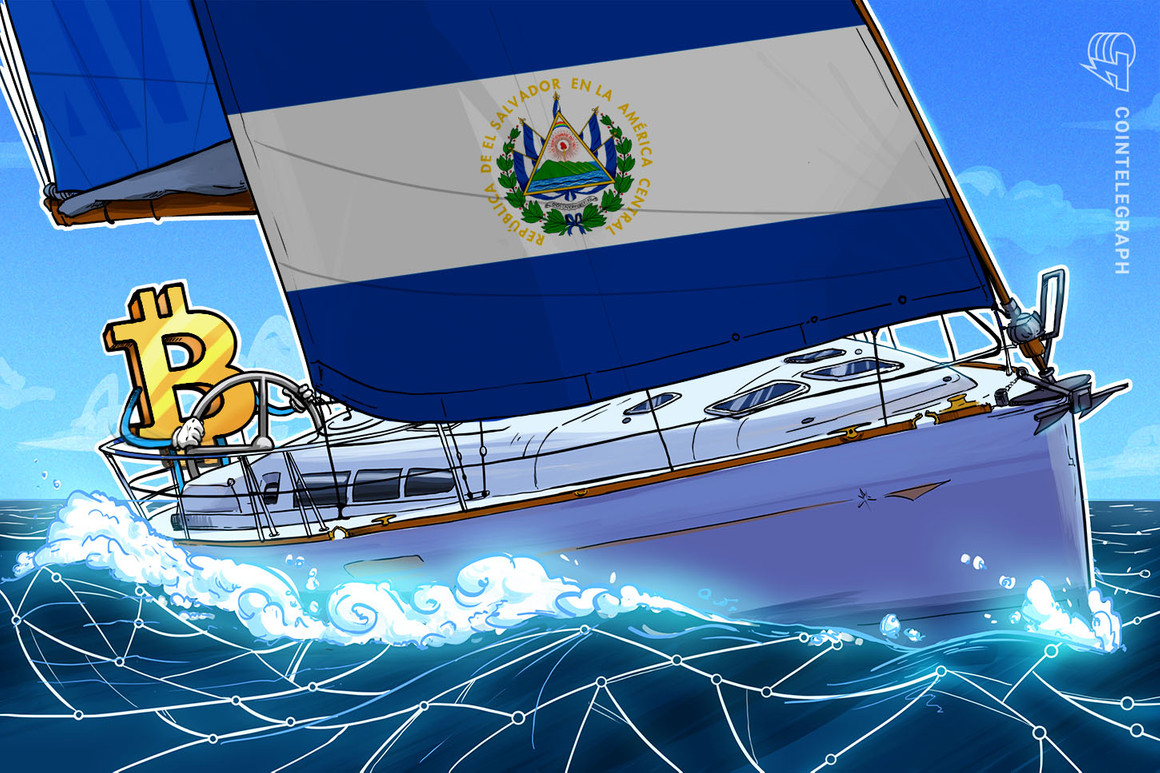El Salvador, the small Central American nation that made history just over a year ago when it made Bitcoin (BTC), recently marked its first year of BT
El Salvador, the small Central American nation that made history just over a year ago when it made Bitcoin (BTC), recently marked its first year of BTC adoption.
The Salvadoran government touted BTC as a tool to attract foreign investment, create new jobs and cut reliance on the United States dollar in the country’s economy at the time of adoption. Many BTC proponents and the libertarian community rallied behind the small nation despite mounting pressure from global organizations such as the World Bank and International Monetary Fund (IMF) to remove BTC as a legal tender.
A lot has changed over the past year since El Salvador became the first “Bitcoin nation.” Enthusiasm and public interest rose immediately after the recognition of BTC, with the price surging to new highs.
Salvadoran President Nayib Bukele joined the growing league of Bitcoin proponents to buy several market dips and even reaped the benefits of their BTC purchase in the early days as the country built schools and hospitals with its profits.
As market conditions turned bearish, however, the frequency of BTC purchases slowed down, and the president, who was often seen interacting with the crypto community on Twitter and sharing future Bitcoin endeavors, cut back his social media interactions significantly.
El Salvador has purchased 2,301 BTC since last September for about $103.9 million. That Bitcoin is presently worth roughly $45 million. The most recent purchase was made in mid-2022 when the nation bought 80 BTC at $19,000 a piece.
As the price of BTC tanked, critics who have long been raising concerns about a crypto bubble felt validated, with several comments along the lines of “I told you so.” However, market experts believe El Salvador’s BTC experiment is far from a failure.
El Salvador’s Bitcoin Volcanic bond, a project meant to raise $1 billion from investors to build a Bitcoin city, has already been delayed on numerous occasions now and skepticism is growing not just around the project but on the overall BTC adoption itself.
Samson Mow, a Bitcoin entrepreneur who played a key role in designing the Bitcoin Volcanic bond — also called the Volcanic token — told Cointelegraph that contrary to common outside perceptions, El Salvador is building through the bear market. He noted that the Volcanic bond was delayed due to several reasons and is currently awaiting the passage of a digital securities law. He explained:
“We’re still waiting on the new digital securities laws to go to congress, and once passed, El Salvador can start the capital raise for the Bitcoin Bonds. I’m hopeful that it happens before the end of this year. Much like Bitcoin companies, El Salvador is focused on building through the bear market. I can’t see President Bukele not stacking more at these prices.”
The BTC price recorded a new all-time-high of $68,789 just a month after El Salvador’s adoption on Nov. 10. Since then, however, the price has tanked by over 70% and currently trading at around $19,000. Many critics believe that the future of the Volcanic bond and its native token is highly dependent on the crypto market and thus it could only gain traction during bull markets.
Paolo Ardoino, chief technical officer at Bitfinex, told Cointelegraph that the Volcanic tokens would generate interest from investors irrespective of the market conditions, he explained:
“The Volcanic token will be the first of its kind. While investor appetite for new offerings is typically greater during a bull market, we are confident that the unique proposition that this token represents will garner significant interest regardless of market conditions. The Volcanic token has widespread support in the Bitcoin community and there is manifestly a great appetite for the offering regardless of if we are in a bear or bull market.”
Bitfinex is the key infrastructure partner of the El Salvador government responsible for processing transactions from the sale of Volcanic tokens.
Bitcoin adoption boosted remittance and tourism
While critics have called El Salvador’s Bitcoin experiment a failure since the start, proponents see it as a revolution of sorts and believe El Salvador’s adoption could create a domino effect for other nations with similar financial challenges such as a high number of unbanked citizens and significant remittance volumes.
Bukele has previously mentioned that the primary focus of recognizing BTC was to offer banking services to more than 80% of unbanked Salvodrans. Within six months of the law passing, the country’s national Bitcoin wallet managed to onboard four million users, ensuring that 70% of the unbanked population got access to payment and remittance services without having to go to a bank.
Recent: Metaverse graphics aim for community and accessibility — Not realism
Aarti Dhapte, a senior research analyst at Market Research Future, told Cointelegraph that El Salvador’s BTC adoption has proven a success on several fronts, be it banking…
cointelegraph.com
